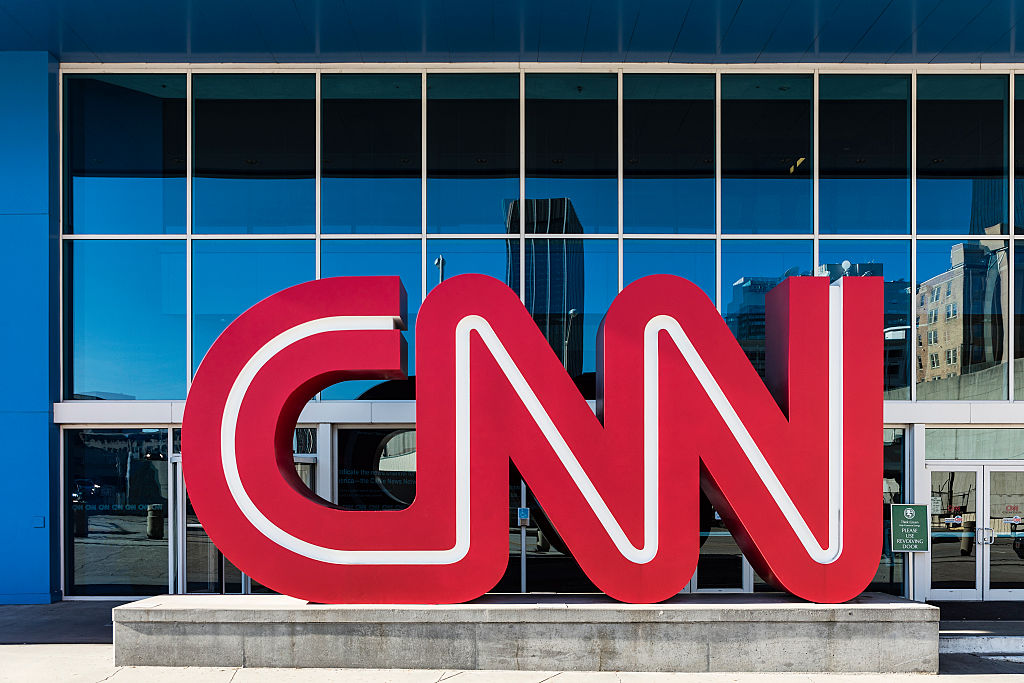
www.dailywire.com
Why The Mainstream Media Is Starting 2025 On Its Last Legs
Americans’ trust in the legacy media reached an all-time low in 2024, with only 31% of the public saying they have a “great deal” or even a “fair amount” of trust in the biggest outlets that bring us our news.
Among independent voters, only 27% feel confident that the media provide accurate coverage without bias. In fact, according to Gallup, the media is the least-trusted of 10 civic and political institutions, behind even Congress, the group previously at the bottom of the barrel.
Predictably, another year of controversies, retractions, and fiascos contributed to a massive contraction in the industry over the last 12 months, despite the fact that it was an election year — a time when news revenues typically increase. Just before the start of 2024, outlets like Axios, The Washington Post, and NPR saw substantial layoffs. In January, The Los Angeles Times cut more than 20% of its newsroom and Time Magazine cut 15%.
That bad news continued throughout the year. The Associated Press announced it would be trimming its staff by 8% in November, and after CNN cut 100 people in the summer, it closed the year with reports that more layoffs were imminent. Meanwhile, Comcast is spinning MSNBC off into a separate company that may include a new name and rebrand for the network.
Those last two developments are particularly unsurprising given post-election cable news ratings. According to Nielsen data, MSNBC is still down by more than half of what it was averaging up to election night. And CNN is down by slightly less than half — though it didn’t have as far to fall, given it was already at the bottom of the pack. Only Fox News, which now draws 72% of primetime cable news watchers, is thriving.
If there is one theme of the current media landscape, it’s that the legacy outlets may not be dead yet, but their influence is quickly being replaced by popular podcasts and new media.
A review of the legacy media record for 2024 shows they have no one but themselves to blame. While it would take a book to cover all of the shoddy journalism and overt Democratic propaganda that led to this point, these were some of the worst examples.
Blaming Trump For The Attempt On His Life
Perhaps the most egregious media fail of the year was the callous coverage of the July 13th attempt on Donald Trump’s life at a rally in Butler, Pennsylvania.
That very same night, ABC’s George Stephanopoulos and Martha Raddatz opined of the shooting that “President Trump and his supporters have contributed to this violent rhetoric.” The Atlantic’s analysis was even more abhorrent. Only a day later, essayist David Frum summarized events by saying, “Now the bloodshed Trump has done so much to incite against others has touched him as well.”
Frum offered exactly zero examples of how Trump’s campaign messaging incited bloodshed.
In September, when there was a second attempt on Trump’s life at his golf course, mainstream media continued to blame the victim.
Almost immediately after the news broke, MSNBC anchor Alex Witt asked political analyst Elise Jordan if she “[expected] to hear anything from the Trump campaign about toning down the rhetoric, toning down the violence.” Witt responded, “Well, remember back to the assassination attempt from President Trump’s life and how, you know, there was talk of a new tone…But then by the end of his convention speech, we were kind of back to where we started.”
That same night, NBC News anchor Lester Holt took the second assassination attempt as an opportunity to criticize Trump, coming close to suggesting he brought it on himself with his critiques of the Biden Administration’s immigration policies. “Today’s apparent assassination attempt comes amid increasingly fierce rhetoric on the campaign trail itself,” Holt intoned gravely. “Mr. Trump, his running mate, JD Vance, continue to make baseless claims about Haitian immigrants in Ohio.”
Remember, Trump was the first Republican candidate to win the popular vote in 20 years. Consider how this type of rhetoric must have struck at least half the country. Even many who didn’t vote for Trump likely found this kind of commentary troubling and off-putting.
Insisting Biden was Mentally Fit, Then Immediately Reversing Course After The Debate
The media’s insistence throughout the spring and much of the summer that President Joe Biden was not suffering from any mental infirmity represented not only obvious deception, but systemic failure.
In June, when MSNBC host Nicole Wallace blamed the Biden appearances that were alarming the public on selectively edited clips, it was obvious she was covering for the campaign.
“There’s a growing and insidious trend in right-wing media to take highly misleading and selectively edited videos of President Biden directly from Republican National Committee social media accounts, and then use those videos to spread messages virally, to cast doubt on President Biden’s fitness for Office,” she said.
Her colleague, Joe Scarborough, went even further, declaring, “This version of Biden, intellectually, analytically, is the best Biden ever, not a close second. And I’ve known him for years. The Brzezinskis have known him for 50 years. If it weren’t the truth, I wouldn’t say it.”
But it wasn’t the truth, and the fact that Scarborough claimed it was helps explain why once loyal viewers have been abandoning Morning Joe in droves.
To be fair to MSNBC, the list of legacy outlets that dismissed videos of Biden appearing lost and confused is a long one. The New York Times, the Washington Post, CNN, the AP, NBC — they all dutifully performed false “fact-checks” and labeled the videos “cheap fakes,” meaning misleading edits of real video. When White House Press Secretary Karine Jean-Pierre leaned into that narrative during White House press briefings, many Americans viewed it as a collaborative effort between the media and the Biden Administration.
When Biden’s disastrous debate performance at the end of June made it impossible to deny his mental state, media coverage changed immediately. Many outlets began calling for him to step aside.
Just one example: on June 21st, The New York Times ran a story that reported that any claims Biden was suffering from diminished faculties were because of these cheap fakes. Two weeks later, the day after the debate, the editorial board called on him to step down due to his mental lapses, and the paper ran coverage in which those same videos were highlighted as evidence of his infirmities.
Biased Debate Moderation
Bad fact checks weren’t just for reporting in 2024. They were also a prominent feature of the presidential and vice-presidential debates.
At the ABC debate between Trump and Harris, moderators David Muir and Linsey Davis fact-checked Trump numerous times, including when he was generally correct. For instance, when Trump said that some states have passed legislation that allows for “execut[ing] the baby after birth,” Davis broke in. “There is no state in this country where it’s legal to kill a baby after it’s born,” she said in clipped tones before turning the floor over to Vice President Kamala Harris for her response.
This was a fairly semantic and misleading “fact-check” given that Harris’s running mate, Minnesota Governor Tim Walz, helped repeal a state law that required doctors to render medical aid to a baby that survives an abortion. Meaning, in Minnesota doctors can let born babies die, something that has happened in at least eight cases in that state. New York and Illinois also repealed laws that require medical care for babies that survive abortion.
By the same token, ABC never fact-checked Harris even though she made a number of false claims, like saying that there are no members of the US military on active duty in a combat zone anywhere around the world. In fact, there are 3000.
After the debate, Time Magazine wrote that Trump’s claim that Harris supported funding sex changes for illegal immigrants was false. It wasn’t, and Time later had to issue a correction.
That glaring bias recurred with NBC and the Vice Presidential debate. Moderator Margaret Brennan interrupted Sen. JD Vance as he was referencing how the town of Springfield, Ohio has been overrun by Haitian immigrants. “Just to clarify for our viewers,” she said, “Springfield, Ohio does have a large number of Haitian migrants who have legal status, temporary protected.”
She then tried to prevent Vance from responding to this, but Vance persisted and informed viewers at home that Brennan was playing a rhetorical game that overlooks the fact that most of these immigrants came into the country illegally and only then apply for protection in an abuse of the asylum program championed by Biden and Harris.
It’s hardly surprising that many viewers were irate over the bias in those exchanges.
Covering for Harris
The media’s favorable treatment of Harris was no more ethical. To cite just a few of the countless examples, MSNBC host Al Sharpton did not disclose that the Harris campaign made a $500,000 donation to his nonprofit right before he conducted a softball interview with the candidate. Meanwhile, 60 Minutes was caught having edited their interview with Harris to make what were some pretty meandering, confusing answers from the vice president more comprehensible.
CBS then ignored widespread calls, including from an FCC Commissioner, to release the full transcript of the interview.
Foreign Coverage Foibles
Not all the egg on the legacy media’s face in 2024 centered on the election. When it came to the war in Gaza, major outlets beclowned themselves when it was revealed that they’d been using inaccurate statistics provided by Hamas, which has long been designated a terrorist group by the State Department.
Outlets like The New York Times, The Washington Post, The Guardian, CNN, BBC, Reuters, and AP took data from the Gaza Ministry of Health — which is controlled by Hamas — at face value and passed it along to their audiences. The fatality numbers many outlets reported for Palestinian women and children, for instance, were found by a later study to be mathematically impossible, meaning, in essence, they aided Hamas’ PR campaign.
This same credulity when it comes to war coverage led to an embarrassing incident for CNN on December 11th. The network aired a segment from foreign correspondent Clarissa Ward in which she encountered a man in an empty Syrian prison.
The man tells Ward he had been detained by the Assad regime for months. In a self-serious voiceover, Ward then explains to viewers, “After three months in a windowless cell, he can finally see the sky…‘My face is shaking,’ he says. The rebel tells him there’s no more army, no more prisons, no more checkpoints…Syria is free…It’s the first time he has heard those words.”
Social media users, however, quickly pointed out how inauthentic the man’s clean, healthy appearance and casual behavior seemed, like something out of a low-budget movie. Sure enough, within days, a Syrian fact-checking site revealed that the man was really a former intelligence officer for the Assad government, leading many to question why CNN didn’t take more time to verify the man’s identity before they rushed the story to air.
Mea Culpas Few and Forced
While one might expect the rash of layoffs and downsizing to result in serious introspection throughout the industry, only a few examples have emerged so far, and they’re mostly coming from owners.
Jeff Bezos, who owns The Washington Post, promised in an op-ed titled, “The hard truth: Americans don’t trust the news media,” that his paper will strive for more balanced coverage going forward. Patrick Soon-Shiong, owner of the Los Angeles Times, has promised the same.
That said, at least one member of the journalistic class is acknowledging his failures.
Addressing his claim in 2021 that Republicans who made an issue of Biden’s mental capacity were engaging in “lowest common denominator politics,” Chris Cilizza, formerly of CNN, said:
As a reporter, I have a confession to make. I should have pushed harder earlier for more information about Joe Biden’s mental and physical well being and any signs of decline. … Republicans would regularly ping me and say, “Why don’t you ask more questions to Joe Biden and how he’s doing? He’s .. a 78-year-old man.” And I would sort of brush them off. What I would say is, “Well, there’s no obvious evidence that he’s declining. Yeah, he moves a little slower, he talks a little slower, but there’s no evidence that he’s declining.” And the White House and the people around Joe Biden were absolutely adamant that … asking the question about whether he was in some physical, mental, or both decline was offensive. [Calling it] age shaming. And I think that impacted me at some level, because while I did ask the question from time to time of you know, not directly the White House, but aides and people around in that orbit, I didn’t really push on it, if I’m being honest.
But Cillizza’s semi-apology is the exception, not the rule. Other acknowledgments of failure have come at the behest of legal departments, as when Sunny Hostin, cohost of ABC’s The View was forced to read a legal disclaimer regarding comments she made about Trump’s nominee for Secretary of Defense, Pete Hegseth, and a sex assault accusation that he has called “baseless.”
No forced correction, however, has been as expensive as the one ABC was forced to issue in the closing days of 2024.
In March, during an interview with South Carolina Rep. Nancy Mace (R.), ABC Anchor George Stephanopoulos claimed several times that Donald Trump had been “found liable for rape.”
This was not true. A New York City jury had found Trump liable for sexual abuse and defamation but did not find that he had raped Carroll. Stephanopoulos’ producer reportedly warned him multiple times in advance, including in writing, not to make the rape claim on the air. Stephanopoulos did it anyway, Trump sued, and on December 15, ABC agreed to pay $15 million plus legal fees to settle. The network and Stephanopoulos also issued a joint statement saying they “regret” the anchor’s statements regarding Trump.
Only time will tell if 2024’s bad press will cause the media to turn over a new leaf in 2025.














